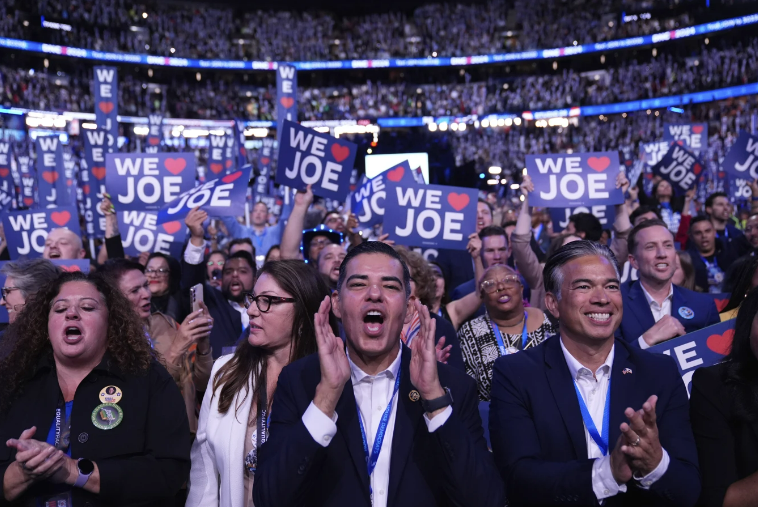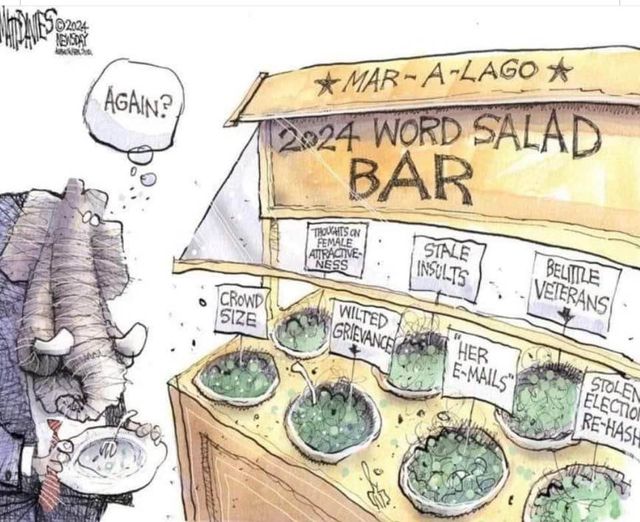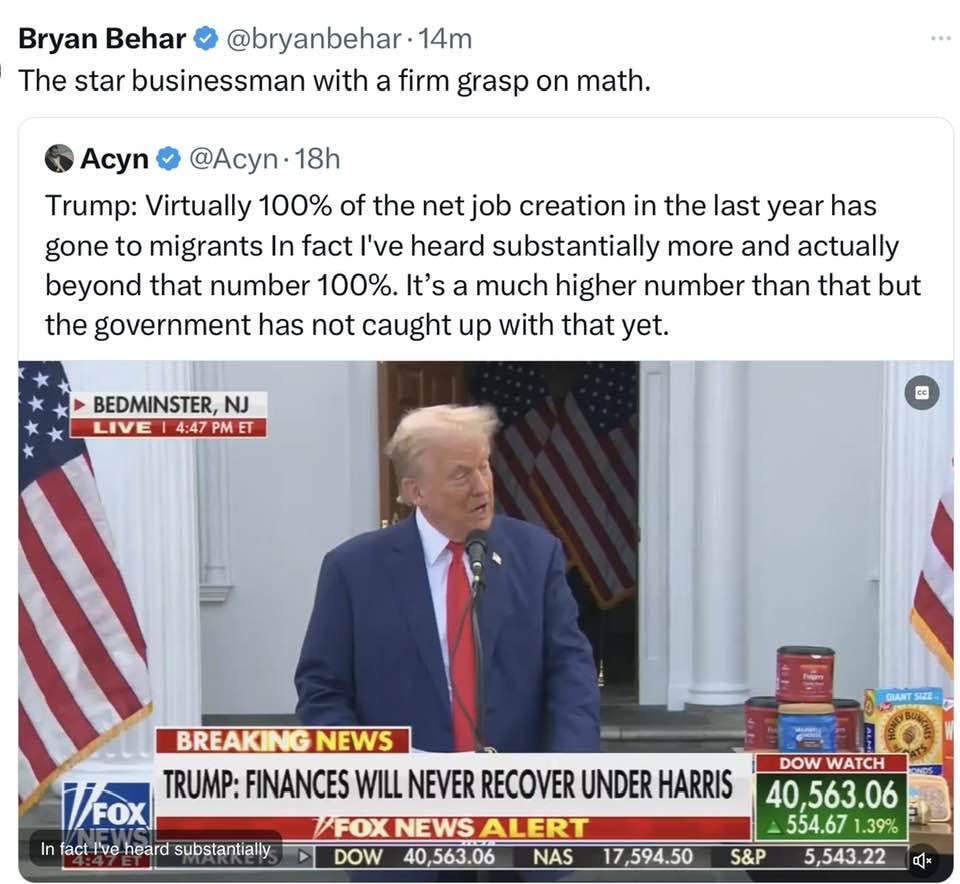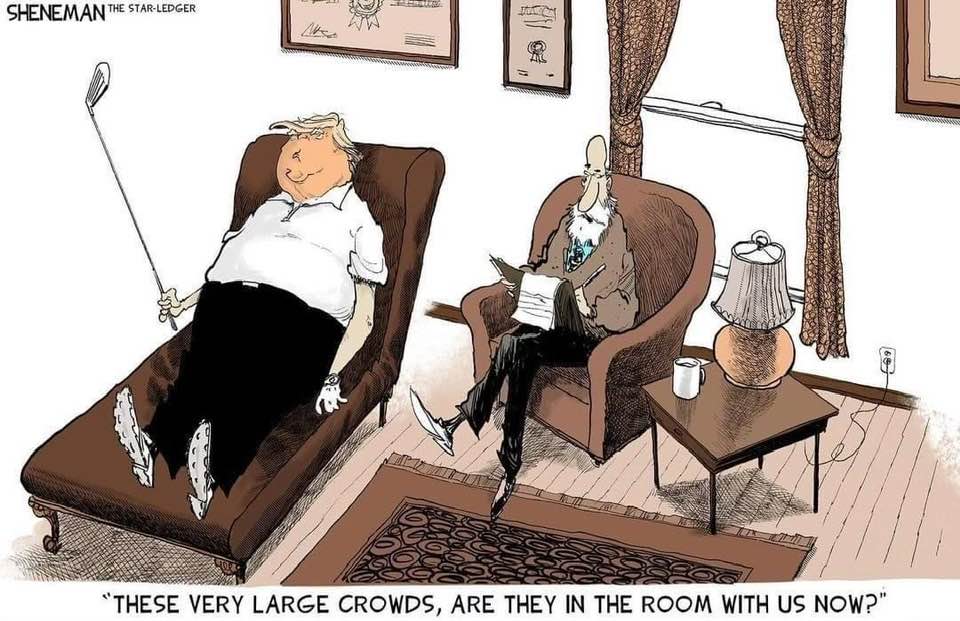Interesting articles I’ve seen over the past few hours —
I recommend this piece by Greg Sargent at The New Republic. He makes an important point. Here’s just a bit:
In her rousing convention speech on Thursday, Harris offered many olive branches to right-leaning independents and Republican voters. She vowed toughness on immigration and crime. She promised to transcend the nation’s divisions. She vowed to govern for all Americans and transcend faction or party. She made numerous appeals to voters with decidedly right-leaning values.
But, in mulling what Harris means by all this, it’s crucial to appreciate what she did not do. Harris offered all this outreach to voters outside the core Democratic coalition without making serious concessions to the ideological preoccupations we associate with MAGA-style right-wing populism. There was no real accommodation with what might be called The World According to MAGA.
Instead, Harris treated Trumpism and the MAGA movement as forces that must be decisively repudiated—and unequivocally left behind.
The crew at the right-wing National Review were never in the tank for Trump, and now that they smell defeat they are to point to it. The original article is behind a paywall, but Raw Story provides some quotes:
“The GOP electoral coalition is the smaller, weaker coalition. It’s lost the popular vote seven out of nine times in my lifetime (I’m 36). It has lost the Electoral College three out of the last four cycles. Conservatives might not be very eager to hear this, but ‘We the People’ are mostly Democrats,” Wright continued.
Republicans can still win despite this, he added, but so far the only times that has happened is when they nominated outsiders — and Trump is now the last thing from an outsider you could imagine.
“Trump isn’t losing because Kamala Harris is being hyped by the press and fluffed up to kingdom come. He isn’t losing because the press is being unfair to him. He’s losing because he’s a weak, unpopular, undisciplined candidate running at the head of a weak, minority electoral coalition. That’s the truth, whether anyone wants to hear it or not,” Wright concluded.
This next article makes an interesting comparison between the two party conventions. The DNC’s stagecraft, signs, posters, chants, etc. were mostly all about America. The RNC’s were just about Trump. Audience signs and chants at the DNC were all about America. At the RNC, it was the Trump show.
And here’s one that says Trump’s “event” at the southern border this weekend featured a setion of wall that was built durng the Obama administration.
MONTEZUMA PASS, Ariz. — A brown ribbon carved a straight gash across a vast, flat desert basin, the only mark of human civilization visible on this wilderness. The partition charged up a steep hill in Montezuma Canyon, then suddenly stopped. Extra pieces lay in piles nearby, rusting monuments to an unfinished campaign promise.
Republican presidential nominee Donald Trump came here on Thursday to heap praise on the structure standing to his right — “the Rolls-Royce of walls,” he called it — and lament the unused segments lying to his left. Joining him there, Border Patrol union leader Paul A. Perez called the standing fence “Trump wall” and the idle parts “Kamala wall,” after his Democratic opponent, Vice President Kamala Harris.
Those labels were inaccurate. This section of 20-foot steel slats was actually built during the administration of President Barack Obama. Trump added the unfinished extension up the hillside, an engineering challenge that cost at least $35 million a mile. The unused panels of 30-foot beams were procured during the Trump administration and never erected
I understand chunks of Trump’s wall are not holding up well, so it’s understandable he chose a section that still looks nice.
We now know that each of the four nights of the Democratic convention had significantly higher ratings that the four nights of the Republican convention. As I keep saying, the days in which putting Trump on television is a guaranteed ratings boost are long over.








